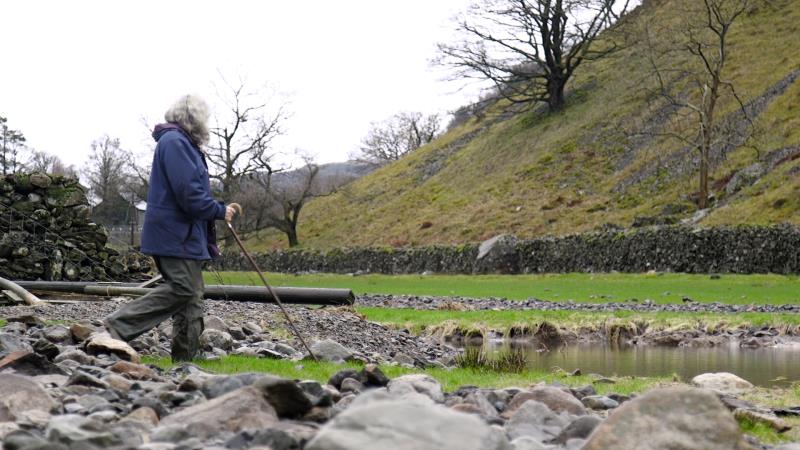Low Bridge End Farm, which has been in the same family for the last 104 years, is a 50 acre farm in Keswick and was flooded extensively on December 5.
The farm suffered every type of damage possible from the sheer force of the water, which obliterated bridges, fences and stone walls and flooded the lowlands. All of the farm’s fields were eroded and some have been left buried under tonnes of gravel.
Sarah Chaplin-Brice, the livestock farmer who owns the farm, is calling on the Government to produce a more co-ordinated response to flood victims in the future.
She said: “Our farm was flooded in 2009 and we were prevented from making essential flood prevention measures such as river dredging. When Storm Abigail hit, we weren’t worried. We knew there was room in the reservoir and then the reservoir filled up and we knew we would be in trouble with the arrival of Desmond.
“Four inches of rain were forecast but eight quickly fell and by first light the scene was unbelievable. Every single one of our fields was flooded. We’re looking at so much debris and damage we really don’t know where to begin with the clean-up. We estimate that the final repair bill will come to around £150k-£200k. The £20k clean up grant, if we get it, isn’t going to go far.”
The NFU is calling for:
- More resilient ways of managing flood risks
- Locally tailored solutions
- An approach that can cope with more frequent and volatile weather.
Storm Desmond: A British Farm Dealing With the FloodSarah Chaplin-Brice, a livestock farmer who owns a small family-run farm in Cumbria says the damage caused by Storm Desmond has left her family feeling bereft. The farm suffered every type of damage possible from the sheer force of the water, which obliterated bridges, fences and stone walls and flooded the lowlands. All of the farm’s fields were eroded and some have been left buried under tonnes of gravel.British farmers must not be forgotten - we're calling for more resilient ways of managing flood risks, locally tailored solutions and an approach that can cope with more frequent and volatile weather.
Posted by NFU Online on Thursday, January 14, 2016
